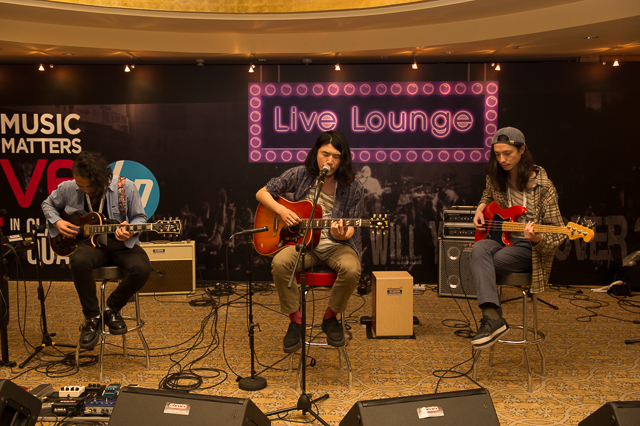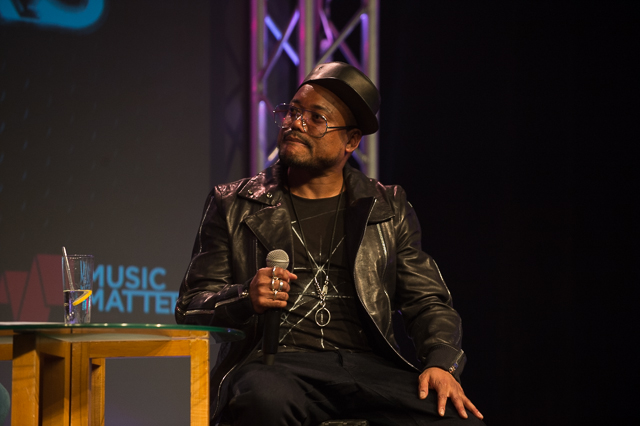
After lunch on day two and the HP live sessions that included a performance by Australia’s Lyon Apprentice, Daniel Glass, the Founder and President of the influential Glassnote Entertainment Group was interviewed by Ralph Simon in the afternoon’s first session.
Glass reflected on his origins as a young DJ, which got him interested in the international music that he’s ended up working with through his life. Saddest day of my career was when Chrysalis Records was sold, “I didn’t want to work for a major.”
He was asked why being “indie” was so important to him, “I prefer to spend 80% of my day without human resource people. I want to spend it with music and creative people. We all wanted to be A&M and recreate Chrysalis Records,” and this is what led to the formation of the Glassnote Entertainment Group, whose first office “was the mezzanine of Waldorf Astoria in New York where we were using their free wi-fi. We got thrown out because they thought we were running a prostitution ring. So we moved to Barneys.”
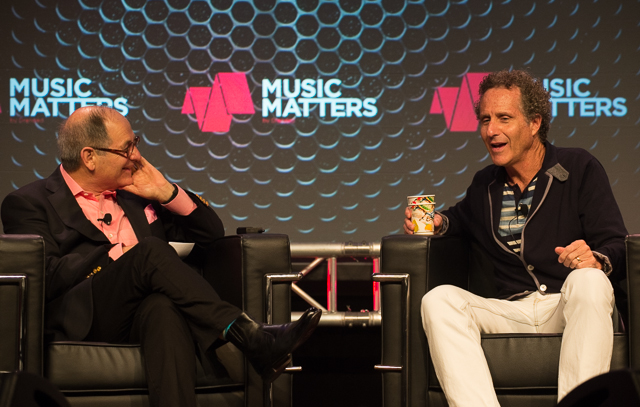
He called Wolfgang Amadeus Phoenix, by influential French group, and early success story of the company, Phoenix, “one of the most perfect records ever produced” and the night they headlined Madison Square Garden “one of the greatest moments of my life!” He also commented on the “unsual” success the company had with Mumford & Sons, “they are one of the few bands who sell albums AND tickets… Canada is their biggest market in the world.”
As for advice for other independent labels, Glass said, “NO is one of the most powerful words an independent label has. It can help keep bands and fans on your side. No to deals and no to bidding wars… when things get aggressive or sour. You don’t want a marriage like that.”
And there was one sentiment that Daniel Glass delivered which may have received the biggest applause of the entire conference: “Artists need to be paid fairly.”
The anticipated interview with Apl.de.ap (pictured) from the Black Eyed Peas followed, conducted by TV & Radio Presenter (and MC for Music Matters) Dominic Lau.
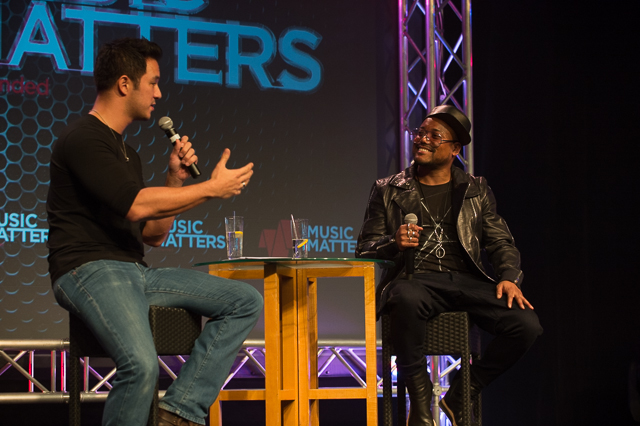
The pair talked about the origins of the Black Eyed Peas, going all the way back to when the Philippines born hip-hop star moved to the USA in 1989 when he was adopted, meeting the man who would become Will.I.Am from the Black Eyed Peas soon thereafter. The formed a dance crew, which eventually became a hip-hop group and the rest is history…
Following his recent stint on The Voice Philippines as a coach, Apl.de.ap has set up his label Boombox, which invests in Asian artists and endeavors to provide a western production, not so much to take it to the US but to give it movement. He’s proud of his heritage and it was a pleasure to have Apl.de.ap at Music Matters to share with us his love of music and of the region.
Next up was Christophe Muller, director of global music partnerships for YouTube, whose message was a simple one: “it’s not all about views, it’s about engagement.” He was followed by Haji Taniguchi, President of Avex Music Publishing, and the Chairman of MPAJ, who provided insights into the Japanese region, which experienced reduced record sales in 2013.
He pointed, however, to the continued strength of the market. US consumers only spend 42% of Japanese consumers per capita, with the UK one of the closest markets, at 85%. He looked at how increased broadcast and performance revenue has helped offset physical sales decreasing in the last year. And looking to those wanted to infiltrate the market, “I strongly suggest analyzing the J-pop market before you try and tackle it. You should talk to a publisher first.”
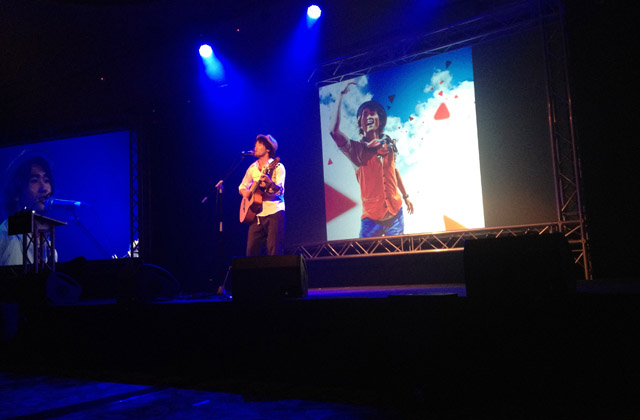
To get a taste of the Japanese music scene, Naoto Inti Raymi (pictured) gave us an acoustic performance of a song which translates to “I wish you could come back once more.” He also talked about how he’s looking beyond Japan for his future career, “my dream is to do a world tour one day!”
We went in conversation with Charles Caldas, CEO of the global independent rights agency Merlin, next – with Bernie Cho, President of DFSB Kollective in the interview chair. He looked at the growth of streaming and the new digital economy, and how independent music now has the biggest market share when compared to the big three labels in the USA (Warner, Sony, Universal). Furthermore, “there’s more value coming into the market as digital numbers double every year.” So for all the challenges facing the current market, the future is looking bright.
The final interview for today was with Marc Geiger, Worldwide Head of WME Music (William Morris Entertainment). His talk delivered some incredible insights into the digital and live music industries, both in Asia and around the world.
He signaled some of the problems facing Asia on the global touring stage, pointing to a lack of strategic planning and available analytics. He also looked at the problem faced when artists, managers and touring companies are trying to set prices that match what they may achieve in other markets: “People can’t be so tight on deals in this region until there’s scale and room to move. Wait until they’ve built the buildings before you focus on the money, otherwise nothing will happen.”
Then there are the geo-political issues, “We got a direct terrorist threat before Lady Gaga’s sold out show of Indonesia which led it to be cancelled.” And in China, he commented that she hasn’t been allowed to perform there, “it’s not that they’re worried about Gaga might say, it’s more her influence on alternative culture. Will everyone dye their hair purple? If there’s any suppression of their art then it’s not a healthy culture.”
His comment on digital was also an interesting one, if not controversial. The culture of the illegal download, he said, has led to more people listening to music than ever before, “the industry’s bad handling of digital has made music go everywhere.” And while record sales might be down, the industry is healthier than ever thanks to more artists, doing more tours and more business than ever before. He called the current state of recorded music a “train wreck”, but said that as it remains a $200 billion business, “people need to move on it” to get that money flowing again.
At the end of a fascinating day of insight into the music industry, Music Matters wrapped up with a cocktail party kindly sponsored by KOCCA. Korean rock act Asian Chairshot played an acoustic set.
